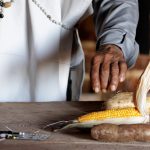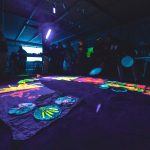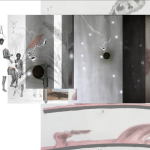
UTC, Time Zone Fri, May 30, 2025 at 12:00 midn
First Nations’ Futures explores digital art as a gateway to share stories about culture, community, and identity. This First Nations’ led session will explore new practices, theories and approaches to socially and culturally engaged art and design that resonates with traditional knowledge systems. Taking a pan-Indigenous approach, we connect participants and projects from Oceania, the North and South Americas, Europe and Asia. Moving beyond aesthetics, we highlight First Nations’ artists, scientists, technologists and community leaders working with digital and emerging technologies in order to spark important discussions about identity, decolonisation, planetary ecology, and social justice.
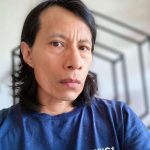
How can emerging technologies reshape our understanding of history, culture, and identity? This talk explores the power of new media—XR, interactive installations, and AI-driven experiences—in reinterpreting traditional narratives. Through case studies and personal projects, we’ll examine how technology serves as a bridge between the past and future, offering dynamic, immersive ways to engage with cultural heritage.

This talk will focus on a series of workshops I implemented in my undergraduate art history courses. By designing workshops for children in elementary schools in Treaty Six Territory, Studio Art students learn what knowledge mobilization means, as they unpack key concepts informed by postcolonial and decolonial methods.
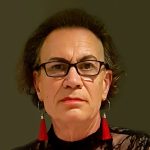
This presentation arose out of PhD research. In bringing Indigenous Practices and Western Science into dialogue, it was necessary to broaden the concept of knowledge. Cartesian Duality, or data and measurement as the basis for knowledge, is part of Indigenous awareness, but not the full picture. There is a tendency in academia for Western knowledge frameworks to inadvertently or deliberately smother Indigenous knowledge. To compare and contrast Indigenous Practice in the digital realm, extending concepts of knowledge is necessary.
No one can speak for all Indigenous peoples – we will see why this is in the presentation. The lightning talk presents categories of knowledge that are often excluded from strict academic guidelines. The important notions of relationality and reciprocity are expressed through diverse means, leading to the important conclusion that without acknowledging these two factors, the human relationship with Earth is doomed. As such, our future is all futures.

Ngangkari (traditional healers) and artists from the NPY Women’s Council in the Central Desert of Australia collaborate with fEEL Lab to create VR experiences/immersive artworks that help address the impacts of intergenerational trauma in remote communities.
Uti Kulintjaku is an innovative, Anangu or Aboriginal-led mental health project that takes its name from a Pitjantjatjara phrase that means ‘to listen, think and understand clearly’. Formed from the Ngangkari traditional healers and artists of the NPY Women’s Council, Uti Kulintjaku collaborate with UNSW fEEL Lab on original VR projects using Anangu stories to address trauma and wellbeing.
In 2019 we made Waumananyi, a VR experience shot in 360-degrees in the Central Desert, about feeling trapped and hopeless, based on the traditional story of a hunter who becomes trapped in a log. We are currently shooting a new VR experience that follows the pathways of a child who is well nurtured and one who is neglected. The Ngangkari will talk about why VR is a powerful medium and how it works to communicate the nature of experience in ways that can have a transformative impact.

The Ecologies of Thought project established an international and multidisciplinary partnership with the Guarani and Kaiowá indigenous communities to explore ecological thinking through the relationship between sound and plants. The project fostered dialogue between different forms and conceptions of technology, ranging from traditional chanting and cultivation practices to the use of microcontrollers, virtual reality, and data analysis. From this context, and from the perspective of a non-Indigenous artist, this talk aims to open a conversation about what it means to collaborate—and what we have learned in the process. Drawing from our own experience, we will highlight various forms of violence identified by the community in academic and artistic spaces that seek to include them but fail to provide the necessary conditions for meaningful participation. Finally, we will reflect on the role and limitations of the non-Indigenous artist/researcher in such contexts.
In collaboration with the Mba’ekuaa Collective
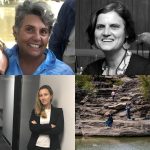
Yimbaya Maranoa Arts Collective is co-facilitated by Gunggari/Bidjara artist/curator Vernessa Fien, Gunggari arts/storywork researcher Vicki Saunders and artist/facilitator Jude Taggart Roberts. Its vision is bold and yet simple – to listen on, for, and with Country in the Maranoa, to listen with purpose, and to share those listenings with broader audiences. Through deep/active/creative listening Yimbaya Maranoa co-creates common/safe ground for leaning into our diverse and intersecting understandings of ancestral personhood, nationhood and our shared relationships with Country (which includes Gunggari, Bidjara, Gungubula, Mandandanji Countries).
The Yimbaya Maranoa Collective uses traditional and digital technologies to generate content. Audio-visual immersive storytelling and participatory sessions foreground truth-telling and the shared, diverse relationships with place, deep time, colonialism, mapping a sense of home and belonging.

As humans become prominent actors in extraterrestrial realms, we pose complex questions of identity. Whose identity becomes a blueprint for “humanity?” What cultures are represented? What others are silenced by deliberate obscuration, or worse—by ignorance and apathy? In response to the issue presented by monolithic identities and monocultures of mind, this lecture explores the storied cultural heritage preserved in Indigenous communities, and presents alternative cultural ontologies relating to the stars, the cosmos, and other dimensions, and extended voyages that can shape the discourse for a more inclusive and diverse mythology of future space exploration.

Dr. Rewa Wright has presented academic and artistic research internationally in Portugal, Spain, Canada, Hong Kong, Colombia, Spain, London and Aotearoa/New Zealand. Her research weaves together theory and practice in art and design, with Indigenous thinking, cyberfeminism, interaction design, planetary ecology, machine learning and more, to think through some of the thorny problems posed by our new hybrid physical and digital spaces. Rewa is a First Nations woman, with Māori heritage from Ngai Tawake/Te Kaimaroke/Te Uri o Hau hapu of Aotearoa/New Zealand. Indigenous practices are emergent in her mixed reality art performances that incorporate and adapt gestures from traditional ‘kapa haka’ dance, and permeate her investigation of plant-data-body ecologies. Her personal website is https://www.rewawright.com.

Bonnie Mitchell is a new media artist and Professor at Bowling Green State University in Digital Arts, in Bowling Green, Ohio, USA. Mitchell is a member of the ACM SIGGRAPH History and Digital Arts Committee where she focuses on the development of the SIGGRAPH archives and coordination of the SPARKS lecture series. Mitchell’s artworks explore spatial and experiential relationships to our physical, social, cultural, and psychological environment through interaction, abstraction and audio. Her current creative practice focuses on development of physically immersive environments using interaction via electronics and special FX to reveal change over time. Her work has been exhibited internationally at numerous venues.



